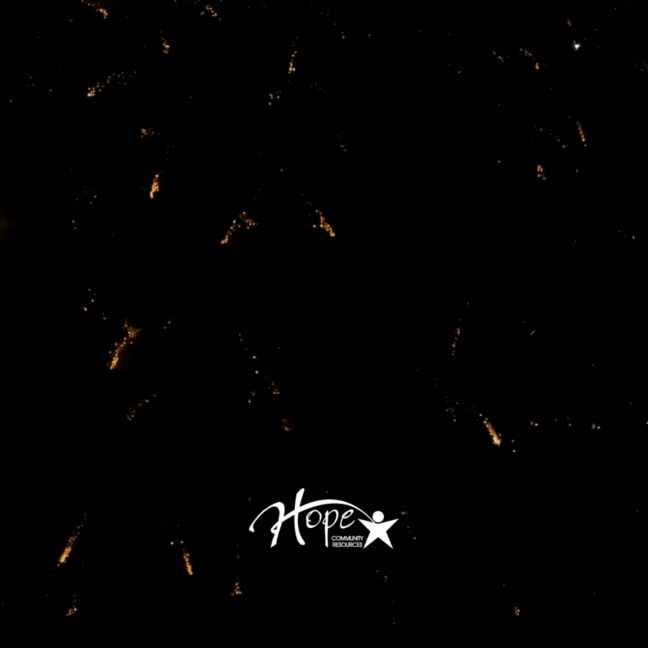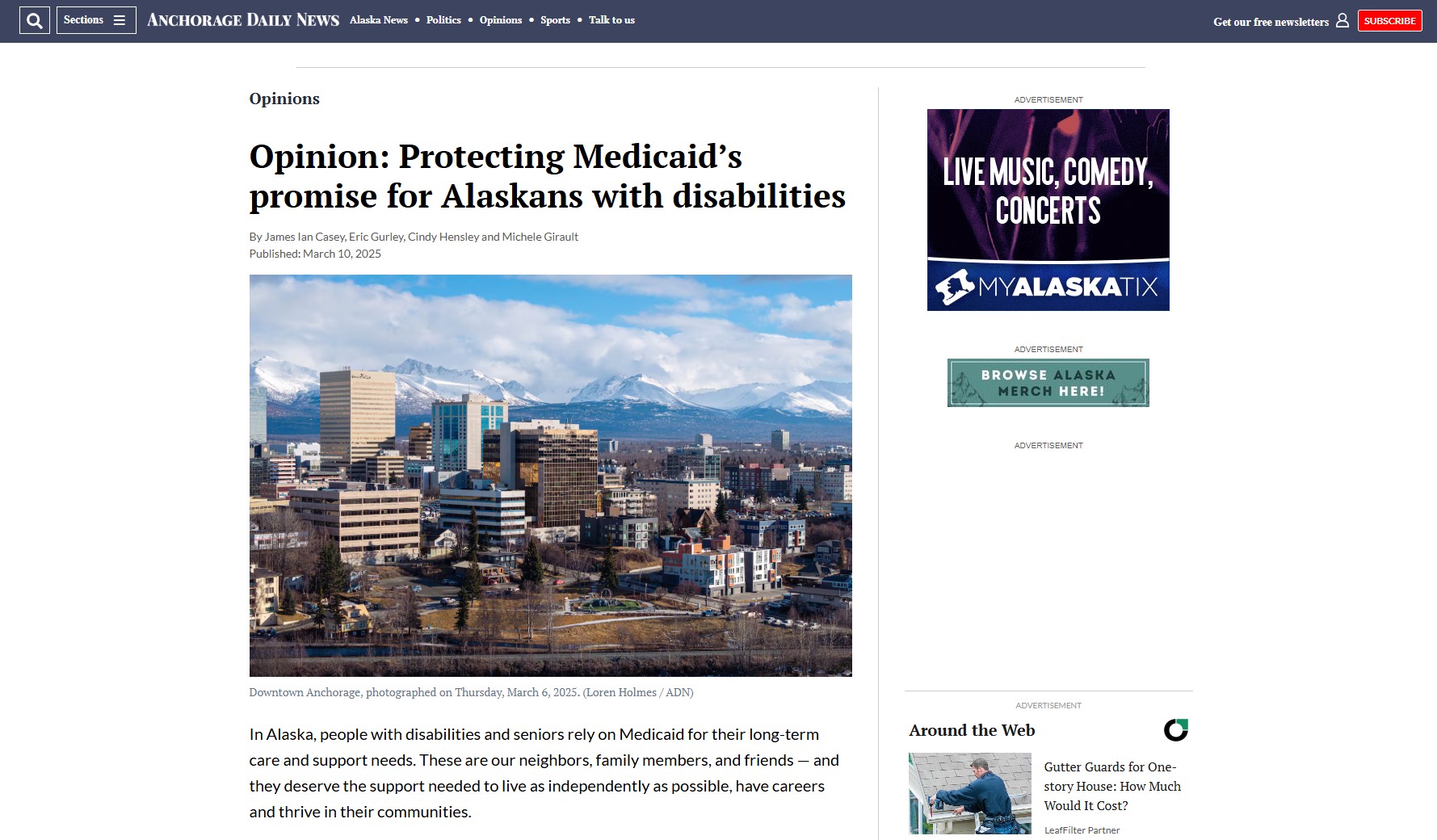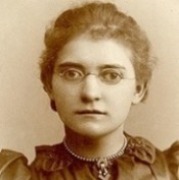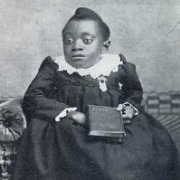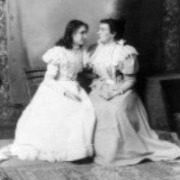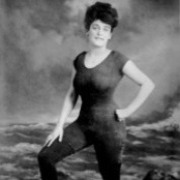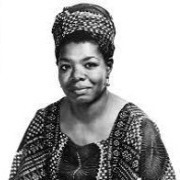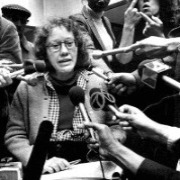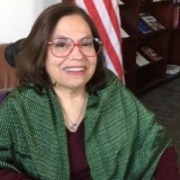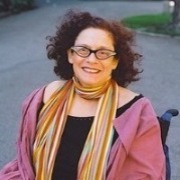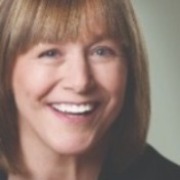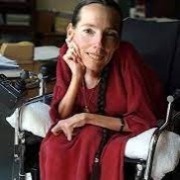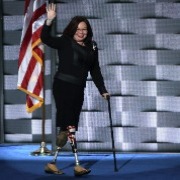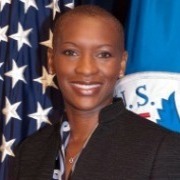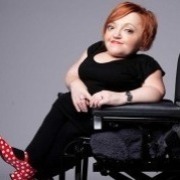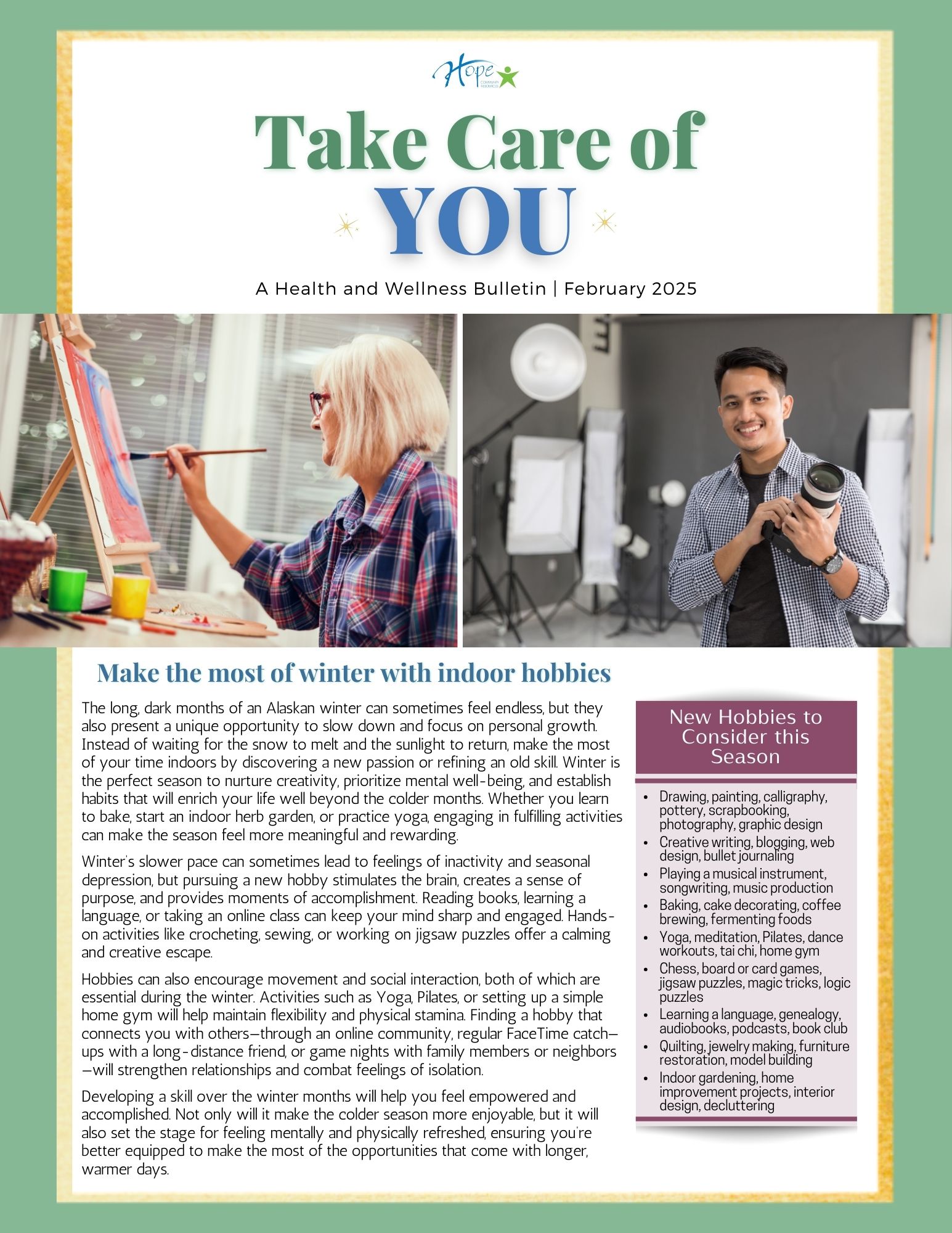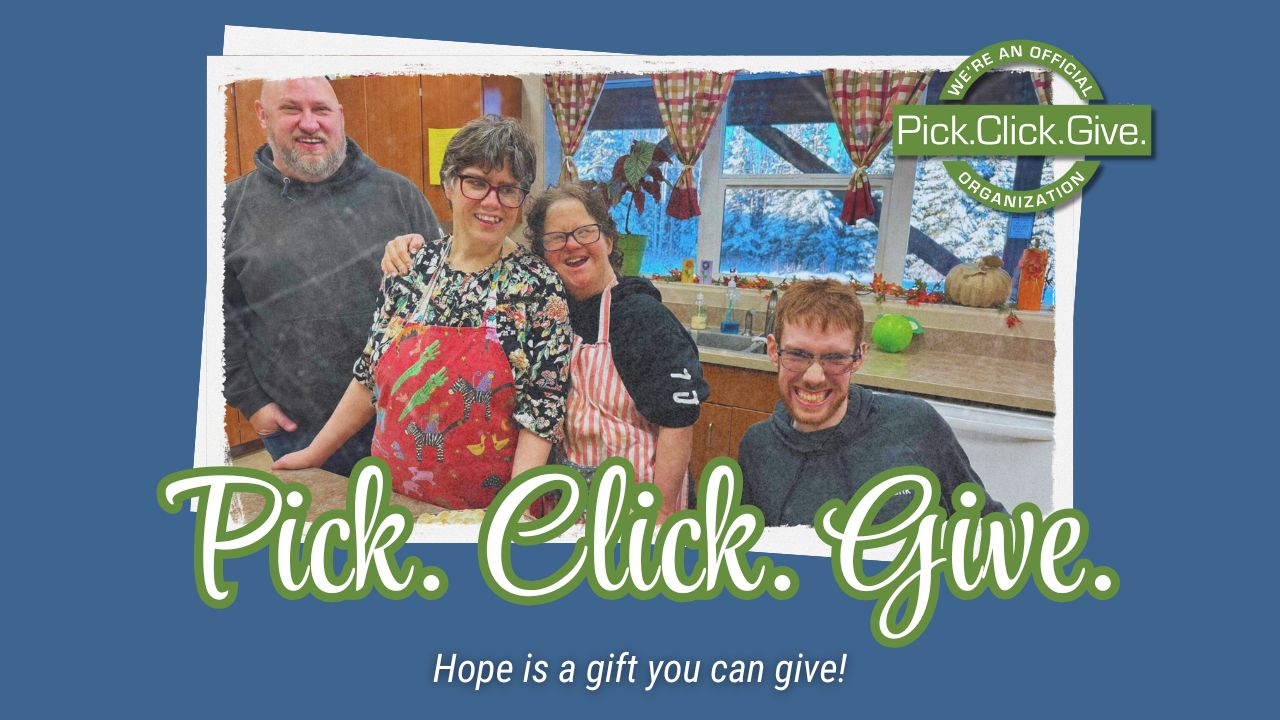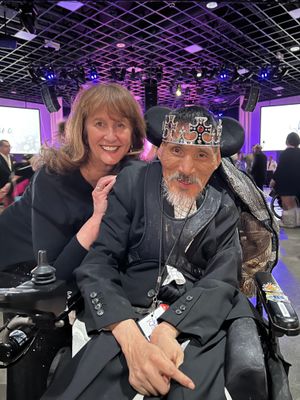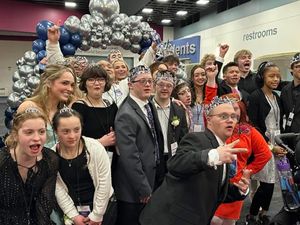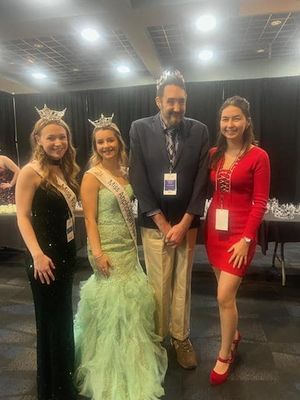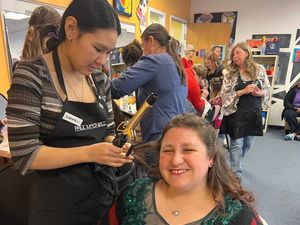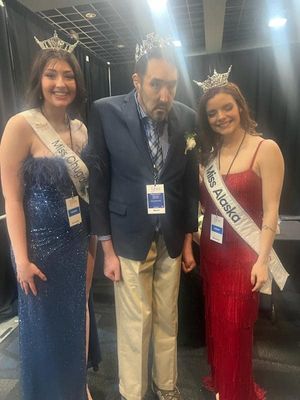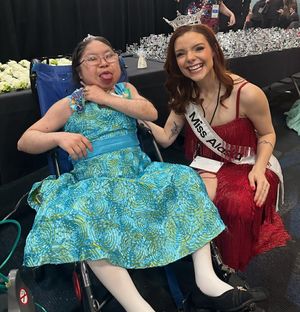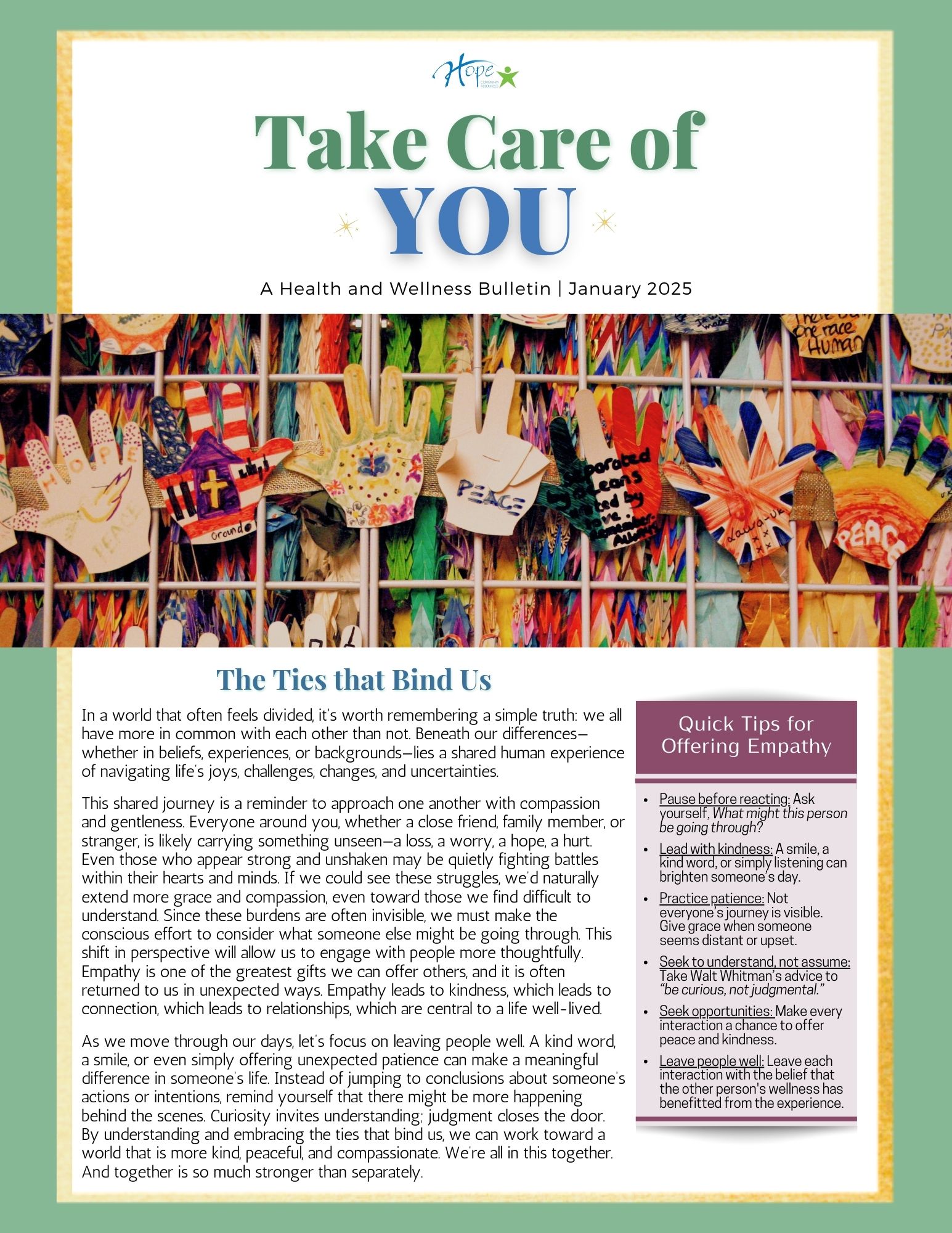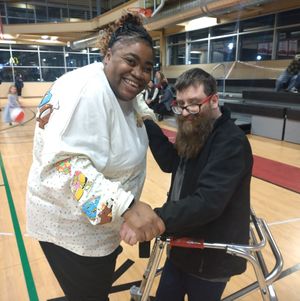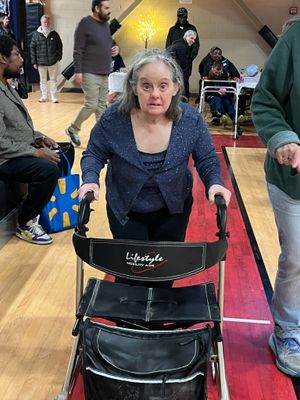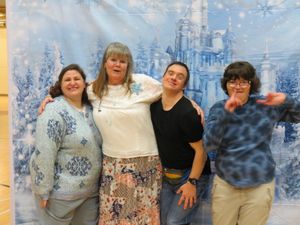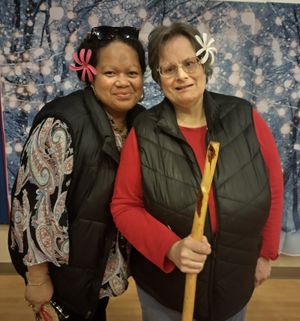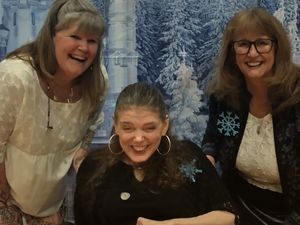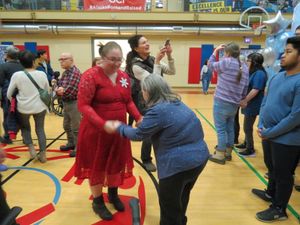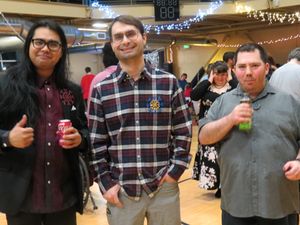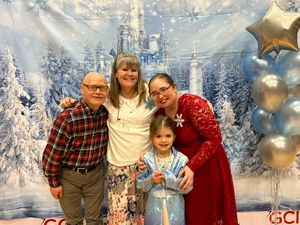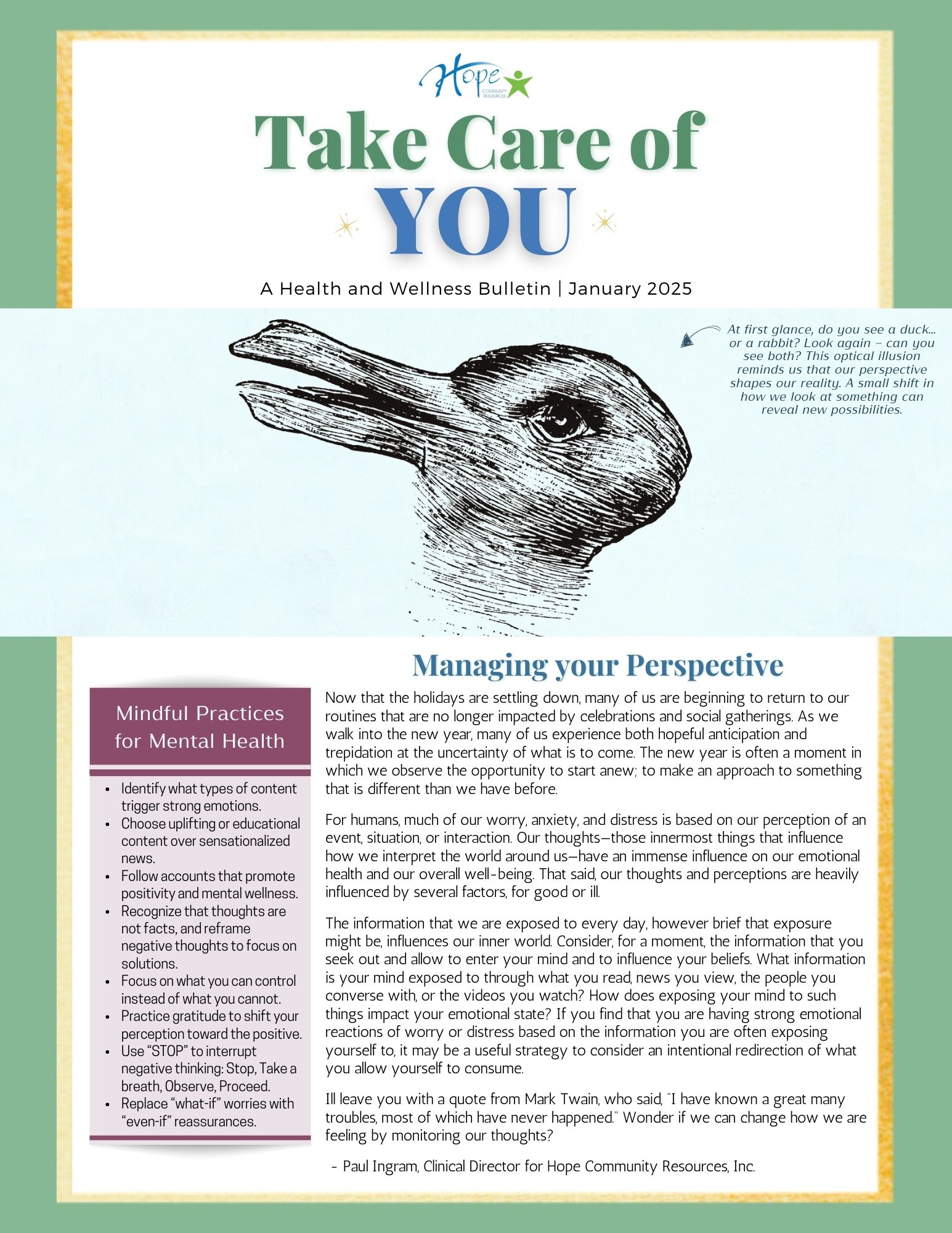Hope Studios First Friday
March 13, 2025
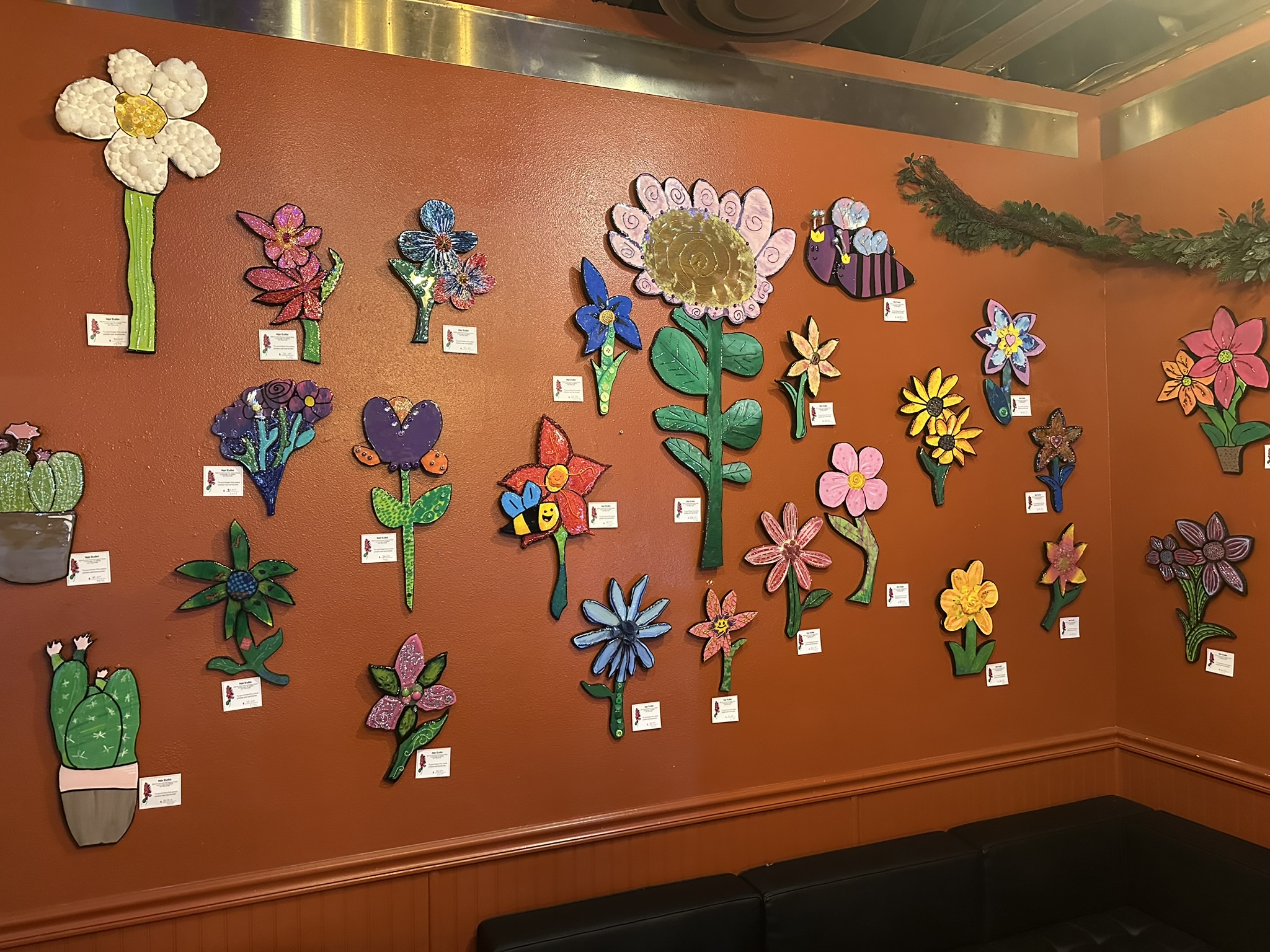 |
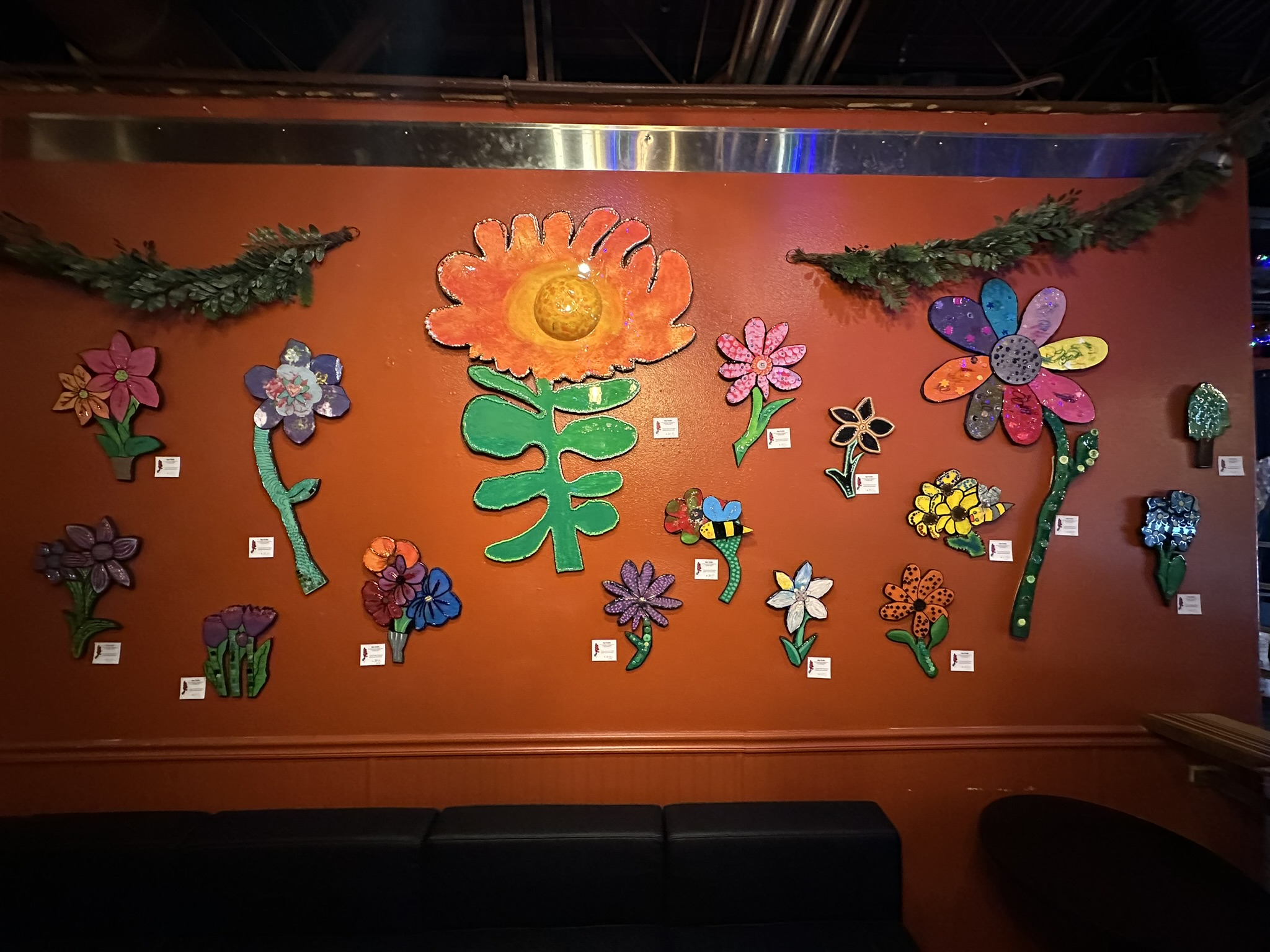 |
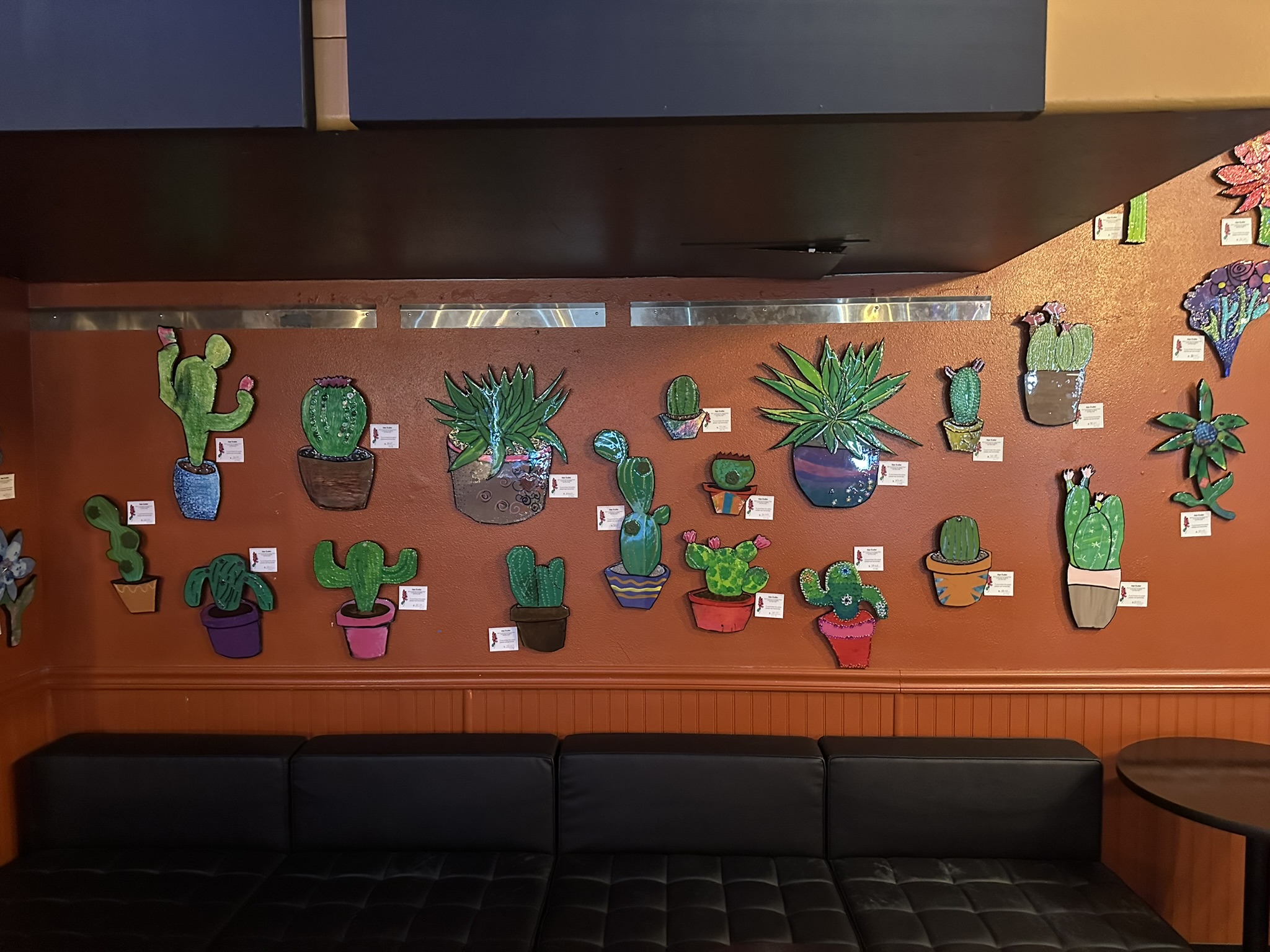 |
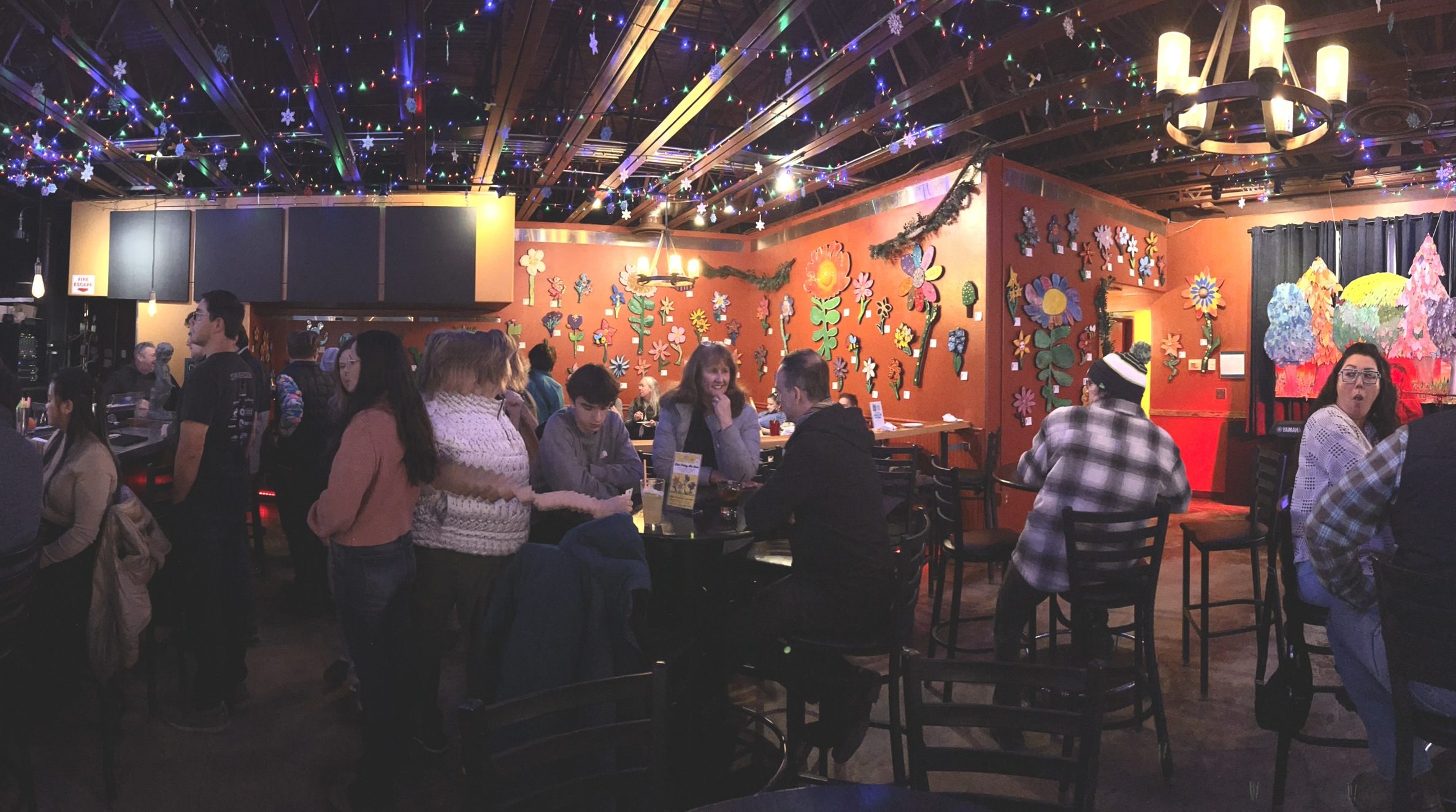 |
||
Protecting Medicaid's Promise for Alaskans with Disabilities
March 10, 2025
"Medicaid isn’t just a line item in the federal budget—it’s a lifeline for our family, friends and neighbors."
International Women's Day
March 8, 2025

Parry Grover's Retirement
March 5, 2025
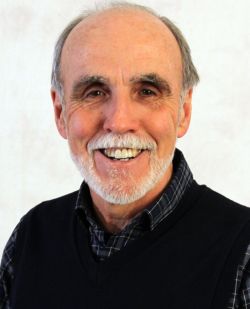
Developmental Disabilities Awareness Month
March 1, 2025
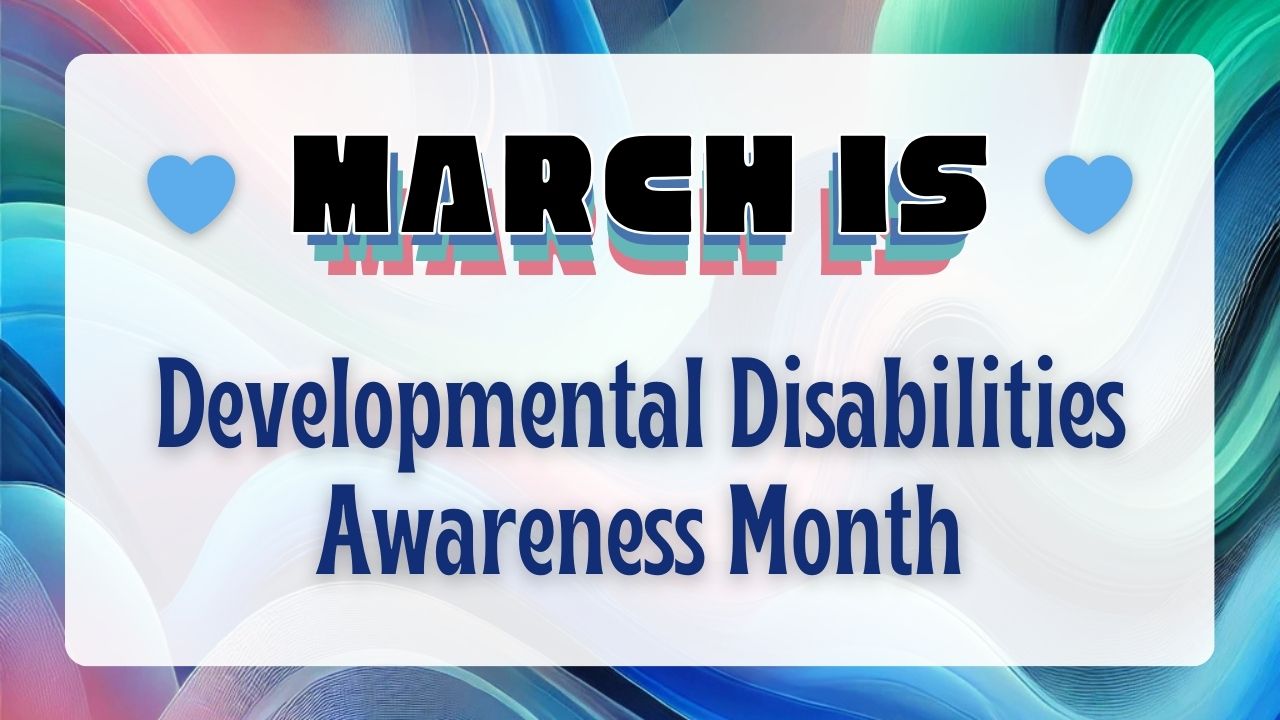
2025 Theme: Creating Pathways to Independence
"For individuals with developmental disabilities, independence is a journey—not a destination. It takes community support, dedicated effort, time spent practicing, and opportunities that empower individuals to reach their unique goals. With this theme, we’re highlighting how we can all play a role in paving the way for these opportunities."
March is Developmental Disabilities Awareness Month (DDAM)—a time to celebrate the contributions of people with developmental disabilities, promote inclusion, and advocate for inclusion, accessibility, and support for people in our community.
In 2023, Governor Mike Dunleavy officially proclaimed March as Developmental Disabilities Awareness Month in Alaska. This proclamation is a testament to our great state's commitment to diversity, inclusion, and the celebration of each and every individual within our community.
What are Developmental Disabilities?
Developmental disabilities are a group of conditions that affect physical, learning, language, or behavioral development. These disabilities begin in childhood and can impact a person’s daily functioning throughout their life. Some developmental disabilities include:
- Autism Spectrum Disorder (ASD)
- Cerebral Palsy
- Intellectual Disabilities
- Down Syndrome
- Fetal Alcohol Spectrum Disorders (FASD)
Why DDAM Matters
People with developmental disabilities often face barriers in education, employment, healthcare, and social inclusion. DDAM is about breaking these barriers and creating a society where everyone has equal opportunities to lead full, meaningful lives.
How Can You Support DDAM?
✅ Educate Yourself & Others
Take time to learn about developmental disabilities and share accurate information to dispel myths and misconceptions.
✅ Advocate for Inclusion & Accessibility
Support policies that promote accessibility in schools, workplaces, and communities. Encourage businesses and organizations to adopt inclusive practices.
✅ Celebrate Diverse Voices
Listen to, uplift, and share the stories of people with developmental disabilities. Recognizing their achievements helps lead to a more inclusive society.
✅ Support Disability-Led Organizations
Hope, along with many other non-profits, work tirelessly to provide resources, advocacy, and community support to people with developmental disabilities. Consider donating or volunteering.
Women's History Month
March 1, 2025
As we honor Women's History Month this March, we embrace this year's theme, "Moving Forward Together! Women Educating & Inspiring Generations," which celebrates the collective strength and influence of women who have dedicated their lives to education, mentorship, and leadership, shaping the minds and futures of all generations.
Our organization stands as a testament to this legacy. Hope was founded by a visionary woman, is currently led by a female Executive Director, has a female Board President, and is supported by a workforce where the majority of Direct Support Professionals are women. We are grateful to every woman who has shaped history, driven social change, and championed the disability rights movement, and we are committed to supporting a society where women's contributions are recognized and celebrated.
Throughout history, countless women have championed social change and advanced the disability rights movement. Their advocacy has transformed communities and inspired future generations. Click each woman's photo below to read about her life and the significance of her activism. While the women featured are far from the comprehensive list of those who have made social change, they are a testament to the power of advocacy and can provide inspiration for future activism.
Women and Disability Activism Resources
- March is Women's History Month: A Timeline of Women's Disability Activism
- Women with Disabilities who Made History
- Women's Disability Activism Timeline
- ADAPT - American Disabled for Attendant Programs Today
- Women Enabled International
Literature from Historic Women
- “Including the Voices of Disabled People in the International Development Agenda” by Judy Heumann
- Our Fight for Disability Rights and Why We’re Not Done Yet – TEDx Talk by Judy Heumann
- Video interview of Kitty Cone on parenting and disability
- You Get Proud by Practicing (1992 poem), Choosing Disability (1994), and Survival Strategies for Going Abroad: A Guide for People with Disabilities (2005) by Laura Hershey
- Too Late to Die Young (2005) by Harriet McBryde Johnson
- Shadow and Sunshine (1906) by Eliza Suggs
- The Story of my Life (1903) by Helen Keller
- Claiming Disability and My Body Politic by Simi Linton
- Disability. Dance. Artistry. – YouTube video by Simi Linton
- I Know Why the Caged Bird Sings by Dr. Maya Angelou (1969)
Stories of Hope Newsletter
February 28, 2025
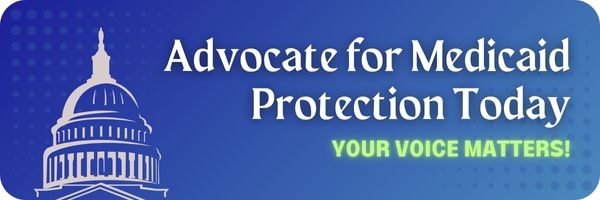
March is Developmental Disabilities Awareness Month—a time to celebrate the contributions of people with intellectual and developmental disabilities (I/DD) and advocate for policies and programs that support inclusion and security.
Right now, that advocacy is more necessary and urgent than it has been in a long time.
The House of Representatives in D.C has narrowly passed a budget resolution that proposes at least $880 billion in cuts, including significant cuts targeting Medicaid. Though the exact details are uncertain, we know that these cuts would have devastating consequences, particularly for Hope and the people and families who choose our services.
Medicaid enables Hope to provide Home and Community-Based Services that allow people with disabilities to live independently, receive care in their community of choice, and prevent out-of-state institutionalization. Medicaid enables Hope to provide Home and Community-Based Services, supporting people with disabilities to live independently, receive care in their community of choice, and prevent out-of-state institutionalization. In addition, Medicaid provides health care coverage for the majority of Alaskans with disabilities. If these proposed reductions go through, they will almost certainly lead to longer waiting lists, fewer services, and significant disruptions in care for Alaskans who depend on them. The State of Alaska is not in a fiscal position to make up the difference if the Federal match is cut.
The time to act is now.
As the budget process moves to the Senate, our voices must be heard. Lawmakers need to understand how these cuts would fundamentally undermine the well-being and independence of people with disabilities.
Strong advocacy is needed in order to make an impact. More than 30,000 messages have already been sent to legislators through advocacy tools, and more than 4,500 non-profits from all 50 states sent an open letter to lawmakers emphasizing the essential role of charitable organizations, including those providing disability services.
Now, we need to build on that momentum.
Ways you can get involved right away:
- Send a message to Lawmakers: Join the movement and urge our lawmakers to reject these harmful cuts.
- Email or call your federal representative: In just a few minutes, you can send an email or make a phone call to local lawmakers through ANCOR’s advocacy platform. Messages can be sent multiple times—even daily—to ensure our voices are heard.
- Write an op-ed or letter to the editor: Use ANCOR's easy-to-use op-ed template or letter to the editor template to share your thoughts about the need to protect Medicaid funding.
- Share your story: Personal stories make a huge difference. ANCOR is compiling stories and photos from Alaskans that will be delivered to our congressional delegation in Washington, DC. If Medicaid has impacted your life or the life of someone you love, now is the time to speak up.
- Join coalition efforts: Hope has signed on to a national letter as part of a broad coalition of Medicaid advocates, and we’re also working with AADD and Alaskans Together for Medicaid to send a joint letter highlighting the policy concerns specific to our state.
- Spread the word: Follow Hope or ANCOR on Facebook and like and share the posts related to this advocacy. Encourage friends, family, and colleagues to also take action. The more people who reach out to Congress, the stronger our collective voice becomes.
This is not just about numbers. This is about real people whose independence, access to care, and quality of life are at stake.
This Developmental Disabilities Awareness Month, please join us in honoring the voices and contributions of people with I/DD by advocating for their right to have access to the services they need.
Your advocacy matters.
Happy Hope Anniversary, Lamonte Fleming!
February 26, 2025

Save Medicaid
February 25, 2025

Make the most of winter with indoor hobbies
Lead Out Text Goes Here
The long, dark months of an Alaskan winter can sometimes feel endless, but they also present a unique opportunity to slow down and focus on personal growth. Instead of waiting for the snow to melt and the sunlight to return, make the most of your time indoors by discovering a new passion or refining an old skill. Winter is the perfect season to nurture creativity, prioritize mental well-being, and establish habits that will enrich your life well beyond the colder months. Whether you learn to bake, start an indoor herb garden, or practice yoga, engaging in fulfilling activities can make the season feel more meaningful and rewarding.
Winter’s slower pace can sometimes lead to feelings of inactivity and seasonal depression, but pursuing a new hobby stimulates the brain, creates a sense of purpose, and provides moments of accomplishment. Reading books, learning a language, or taking an online class can keep your mind sharp and engaged. Hands-on activities like crocheting, sewing, or working on jigsaw puzzles offer a calming and creative escape.
Hobbies can also encourage movement and social interaction, both of which are essential during the winter. Activities such as Yoga, Pilates, or setting up a simple home gym will help maintain flexibility and physical stamina. Finding a hobby that connects you with others—through an online community, regular FaceTime catch—ups with a long-distance friend, or game nights with family members or neighbors—will strengthen relationships and combat feelings of isolation.
Developing a skill over the winter months will help you feel empowered and accomplished. Not only will it make the colder season more enjoyable, but it will also set the stage for feeling mentally and physically refreshed, ensuring you’re better equipped to make the most of the opportunities that come with longer, warmer days.
New Hobbies to Consider this Season
- Drawing, painting, calligraphy, pottery, scrapbooking, photography, graphic design
- Creative writing, blogging, web design, bullet journaling
- Playing a musical instrument, songwriting, music production
- Baking, cake decorating, coffee brewing, fermenting foods
- Yoga, meditation, Pilates, dance workouts, tai chi, home gym
- Chess, board or card games, jigsaw puzzles, magic tricks, logic puzzles
- Learning a language, genealogy, audiobooks, podcasts, book club
- Quilting, jewelry making, furniture restoration, model building
- Indoor gardening, home improvement projects, interior design, decluttering
Pick.Click.Give.
February 17, 2025
Night to Shine
February 12, 2025
Happy Hope Anniversary, Gloria Quezada
February 3, 2025

Black History Month
February 1, 2025

Harriet Tubman (1822-1913) experienced epilepsy, and she was known for her remarkable efforts on the Underground Railroad when she saved the lives of many runaway slaves.
Tom Wiggins (1849-1908) experienced blindness, and he had a remarkable talent for playing the piano and performed at concerts throughout the Americas and Europe.
Fannie Lou Hamer (1917-1977) was diagnosed with polio as a child, and she was a civil rights activities and organizer for voting rights.
Maya Angelou (1928-2014) experienced selective mutism, and she was an incredible poet, memoirist, and civil rights activist.
Johnnie Lacy (1937-2010) was diagnosed with polio and eventually required the use of a wheelchair, and she was an advocate for individuals with disabilities to have the right and resources to live independently in their community of choice.
Wilma Rudolph (1940-1994) experienced several illnesses during childhood, including infantile paralysis, but she went on to become an Olympic athlete known as the “fastest woman in the world.”
Dr. Andrew Foster (1925-1987) experienced deafness, and he was a missionary to Deaf communities in Ghana, Rwanda, and other countries in Africa. He was the first Deaf African American to graduate with a bachelor’s degree from Gallaudet University and a master’s degree from Eastern Michigan University.
Harry Belafonte (1927-present) experiences dyslexia, and he is a talented musician, political activist, and social advocate.
Halle Berry (1966-present) experiences Type 1 diabetes and hearing loss, and she is an advocate for ending violence against women, an advocate for individuals with disabilities, and an Oscar-award-winning actress.
Stories of Hope Newsletter
January 31, 2025
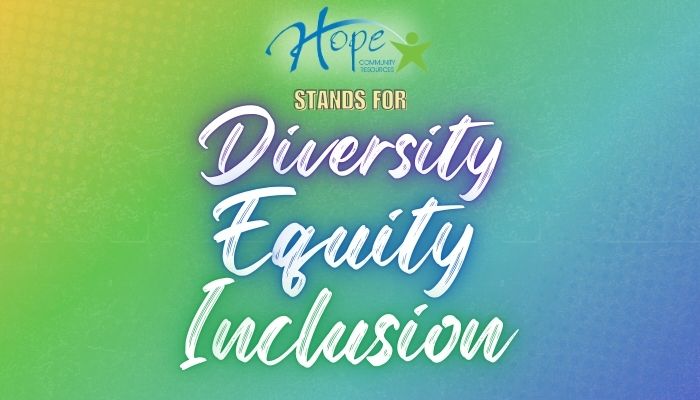
Dear Friends,
Like many of you, I grew up watching Mr. Rogers. Although I don’t have defined memories of the impact of watching his programs as a child, I have found his wise council to be very impactful as I have navigated challenges as an adult.
This week, I found this quote to be both a comfort and a call to action: “As human beings, our job in life is to help people realize how rare and valuable each one of us really is, that each of us has something that no one else has—or ever will have—something inside that is unique to all time. It's our job to encourage each other to discover that uniqueness and to provide ways of developing its expression.”
For over 55 years, Hope Community Resources has existed to support and encourage people with disabilities across Alaska to have opportunities to discover and value their unique expression, and to be an organization that fosters and celebrates the diversity of gifts and talents we all bring to our communities.
We have been a strong voice to help break down barriers to full accessibility with the goal of equal access to employment, health care, transportation, and participation in community.
Communities are enriched by diversity grounded in kindness, acceptance, and a shared desire to lift each other up. We have and will continue to champion what it means and feels like to be genuinely included, to be seen, appreciated and have opportunities to meaningfully contribute.
Mr. Rogers never backed down from encouraging and supporting diversity, and today I find his confident example to be validation that, in the words of Martin Luther King Jr., “The time is always right to do what is right.”
Sincerely,
Michele Girault, Executive Director
The Ties that Bind Us
January 28, 2025
In a world that often feels divided, it's worth remembering a simple truth: we all have more in common with each other than not. Beneath our differences—whether in beliefs, experiences, or backgrounds—lies a shared human experience of navigating life’s joys, challenges, changes, and uncertainties.
This shared journey is a reminder to approach one another with compassion and gentleness. Everyone around you, whether a close friend, family member, or stranger, is likely carrying something unseen—a loss, a worry, a hope, a hurt. Even those who appear strong and unshaken may be quietly fighting battles within their hearts and minds. If we could see these struggles, we’d naturally extend more grace and compassion, even toward those we find difficult to understand. Since these burdens are often invisible, we must make the conscious effort to consider what someone else might be going through. This shift in perspective will allow us to engage with people more thoughtfully. Empathy is one of the greatest gifts we can offer others, and it is often returned to us in unexpected ways. Empathy leads to kindness, which leads to connection, which leads to relationships, which are central to a life well-lived.
As we move through our days, let’s focus on leaving people well. A kind word, a smile, or even simply offering unexpected patience can make a meaningful difference in someone’s life. Instead of jumping to conclusions about someone’s actions or intentions, remind yourself that there might be more happening behind the scenes. Curiosity invites understanding; judgment closes the door. By understanding and embracing the ties that bind us, we can work toward a world that is more kind, peaceful, and compassionate. We’re all in this together. And together is so much stronger than separately.
Quick Tips for Offering Empathy
- Pause before reacting: Ask yourself, What might this person be going through?
- Lead with kindness: A smile, a kind word, or simply listening can brighten someone’s day.
- Practice patience: Not everyone’s journey is visible. Give grace when someone seems distant or upset.
- Seek to understand, not assume: Take Walt Whitman’s advice to “be curious, not judgmental.”
- Seek opportunities: Make every interaction a chance to offer peace and kindness.
- Leave people well: Leave each interaction with the belief that the other person's wellness has benefitted from the experience.
Happy Hope Anniversary, Courtney Wise!
January 22, 2025

Martin Luther King Jr. Day
January 20, 2024

2024 in Photos
January 14, 2025
Frozen Fantasy Dance
January 11, 2025
Managing your Perspective
January 8, 2025
Now that the holidays are settling down, many of us are beginning to return to our routines that are no longer impacted by celebrations and social gatherings. As we walk into the new year, many of us experience both hopeful anticipation and trepidation at the uncertainty of what is to come. The new year is often a moment in which we observe the opportunity to start anew; to make an approach to something that is different than we have before.
For humans, much of our worry, anxiety, and distress is based on our perception of an event, situation, or interaction. Our thoughts—those innermost things that influence how we interpret the world around us—have an immense influence on our emotional health and our overall well-being. That said, our thoughts and perceptions are heavily influenced by several factors, for good or ill.
The information that we are exposed to every day, however brief that exposure might be, influences our inner world. Consider, for a moment, the information that you seek out and allow to enter your mind and to influence your beliefs. What information is your mind exposed to through what you read, news you view, the people you converse with, or the videos you watch? How does exposing your mind to such things impact your emotional state? If you find that you are having strong emotional reactions of worry or distress based on the information you are often exposing yourself to, it may be a useful strategy to consider an intentional redirection of what you allow yourself to consume.
Ill leave you with a quote from Mark Twain, who said, “I have known a great many troubles, most of which have never happened.” Wonder if we can change how we are feeling by monitoring our thoughts?
- Paul Ingram, Clinical Director for Hope Community Resources, Inc.
Mindful Practices for Mental Health:
- Identify what types of content trigger strong emotions.
- Choose uplifting or educational content over sensationalized news.
- Follow accounts that promote positivity and mental wellness.
- Recognize that thoughts are not facts, and reframe negative thoughts to focus on solutions.
- Focus on what you can control instead of what you cannot.
- Practice gratitude to shift your perception toward the positive.
- Use “STOP” to interrupt negative thinking: Stop, Take a breath, Observe, Proceed.
- Replace “what-if” worries with “even-if” reassurances.
Hope Studios First Friday
January 6, 2025
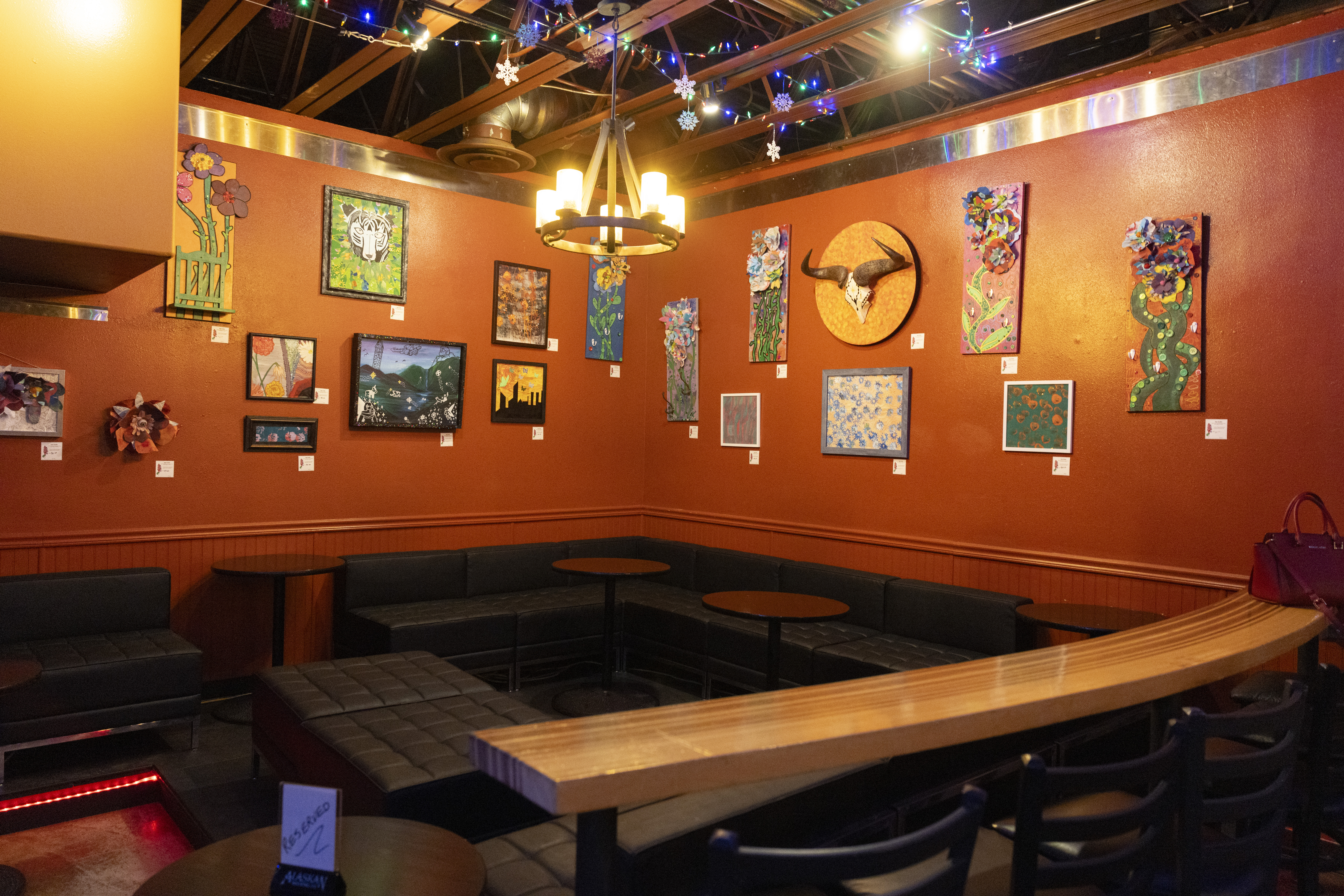 |
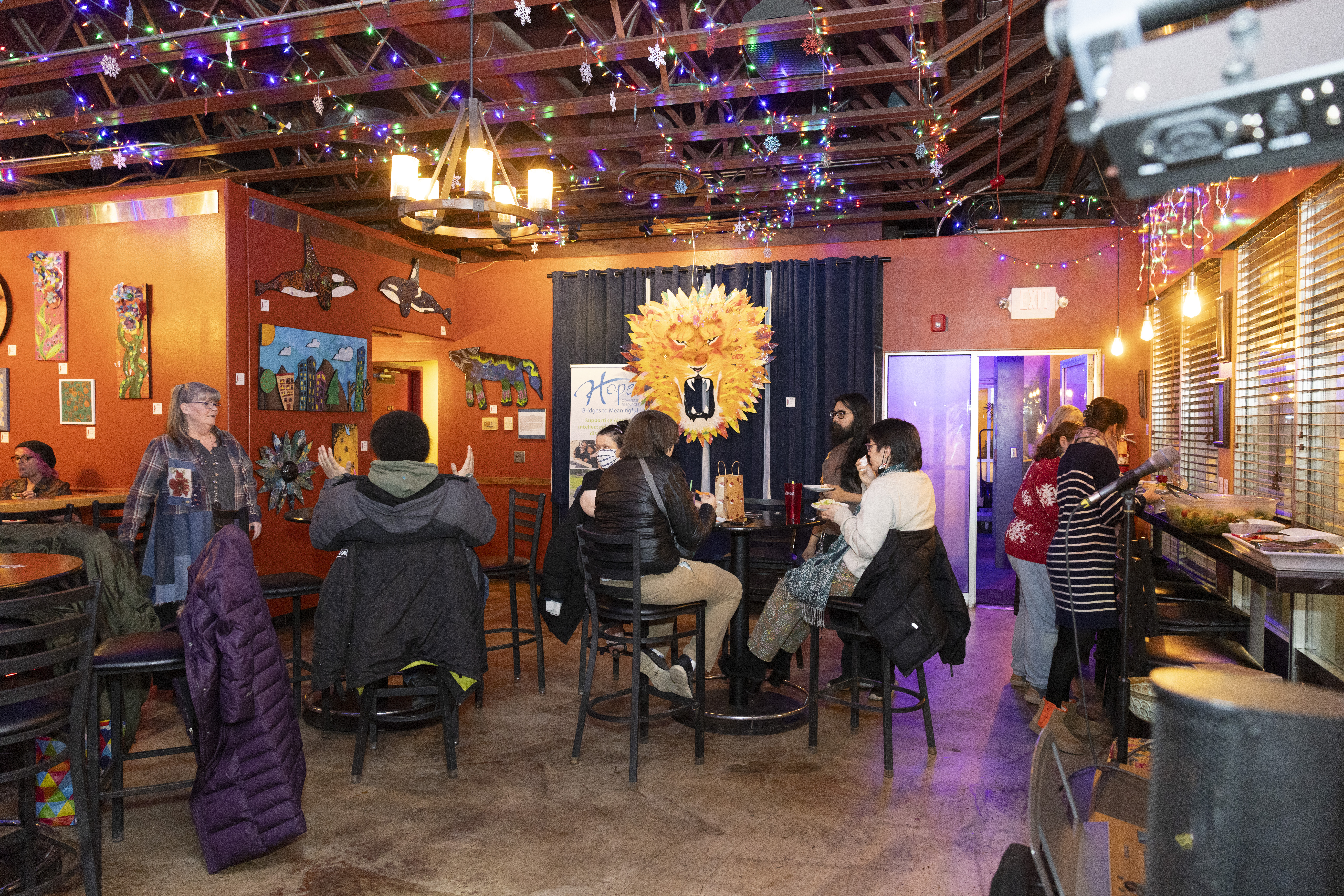 |
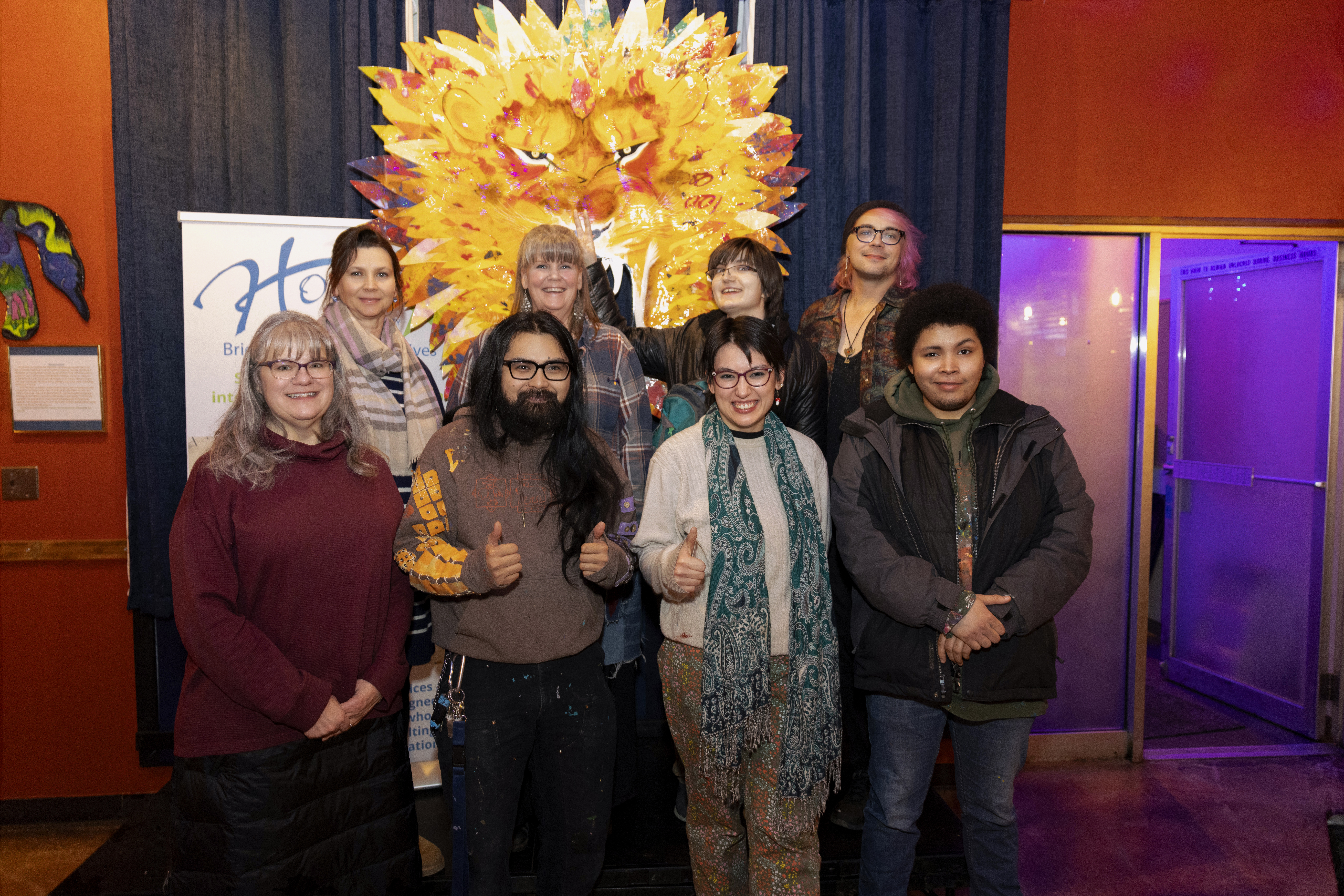 |
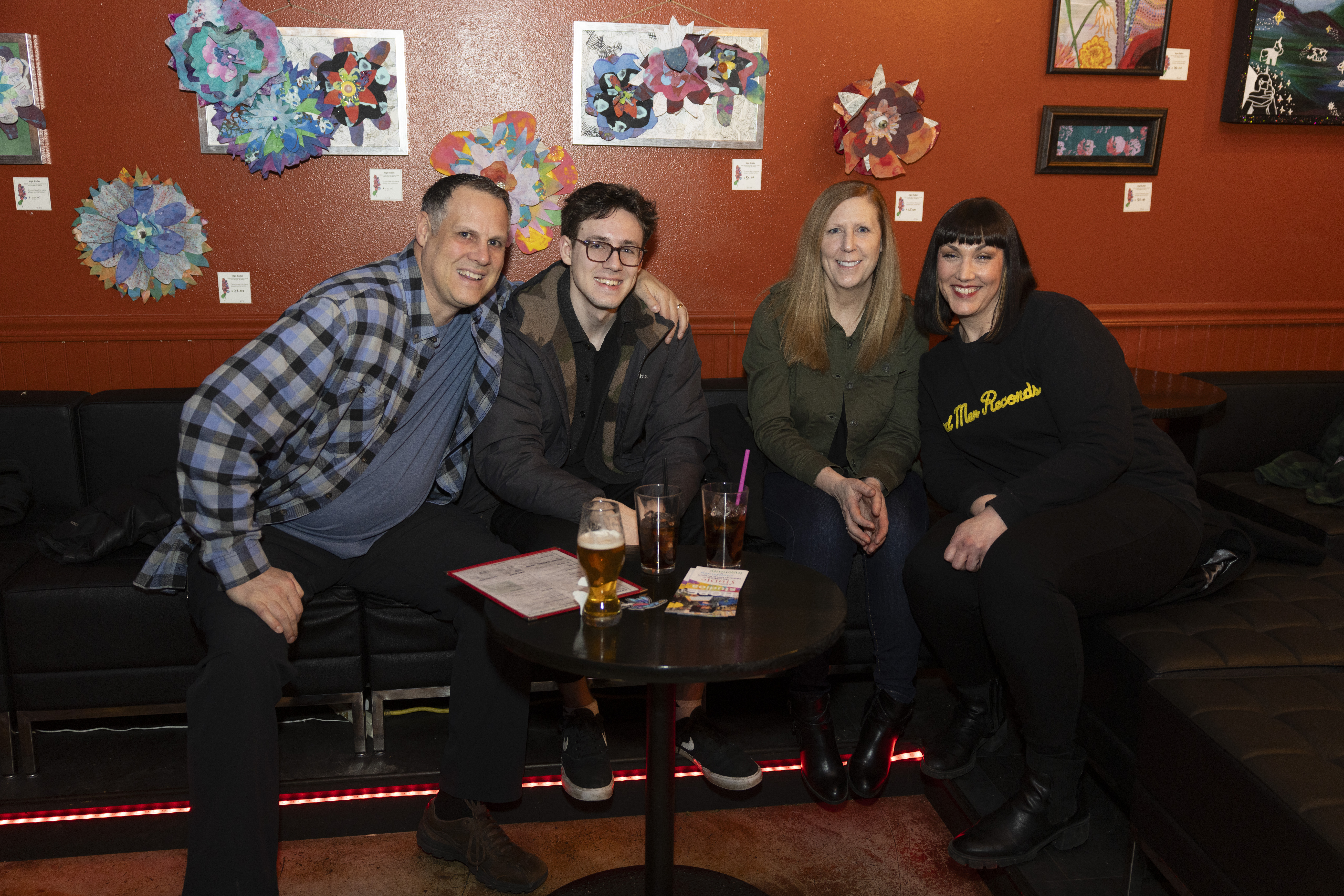 |
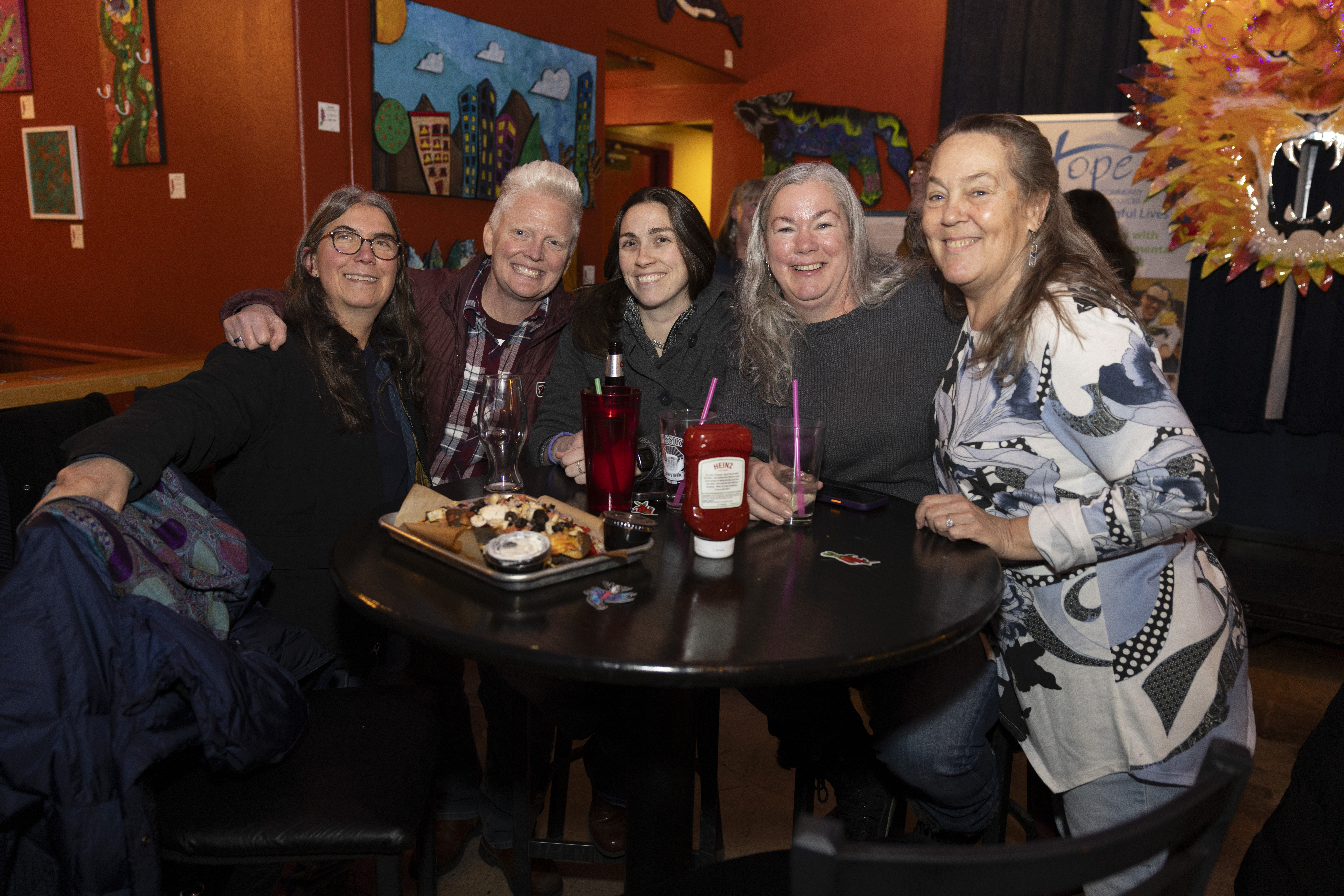 |
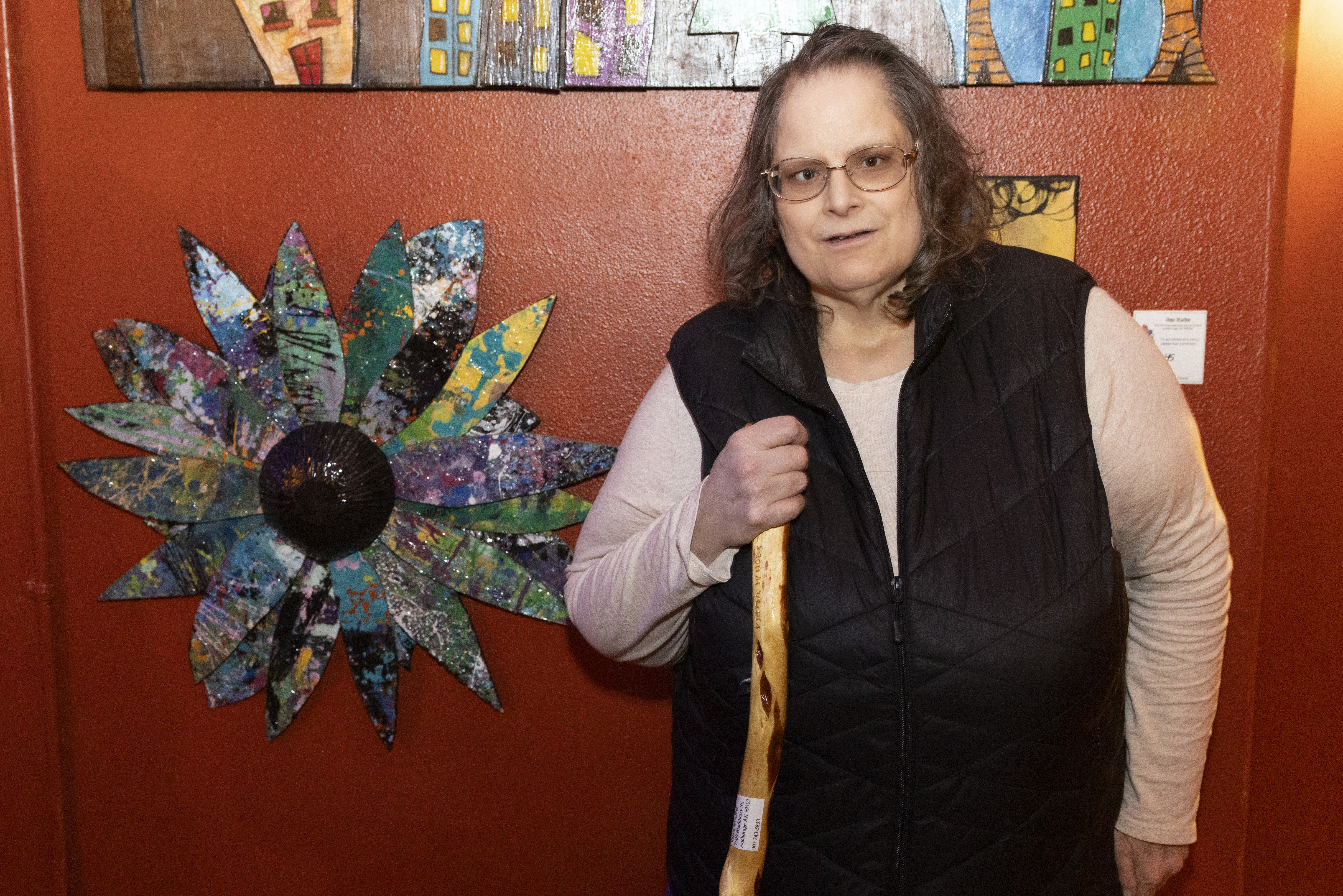 |
Thank you Antique Auto Mushers of Alaska
January 2, 2025
Linda Golding, President of the Antique Auto Mushers of Alaska, presented generous contributions from the Club and its members to our Executive Director Michele, given with gratitude to support Hope’s mission! Thank you for your ongoing generosity and partnership!

Happy New Year!
January 1, 2025
